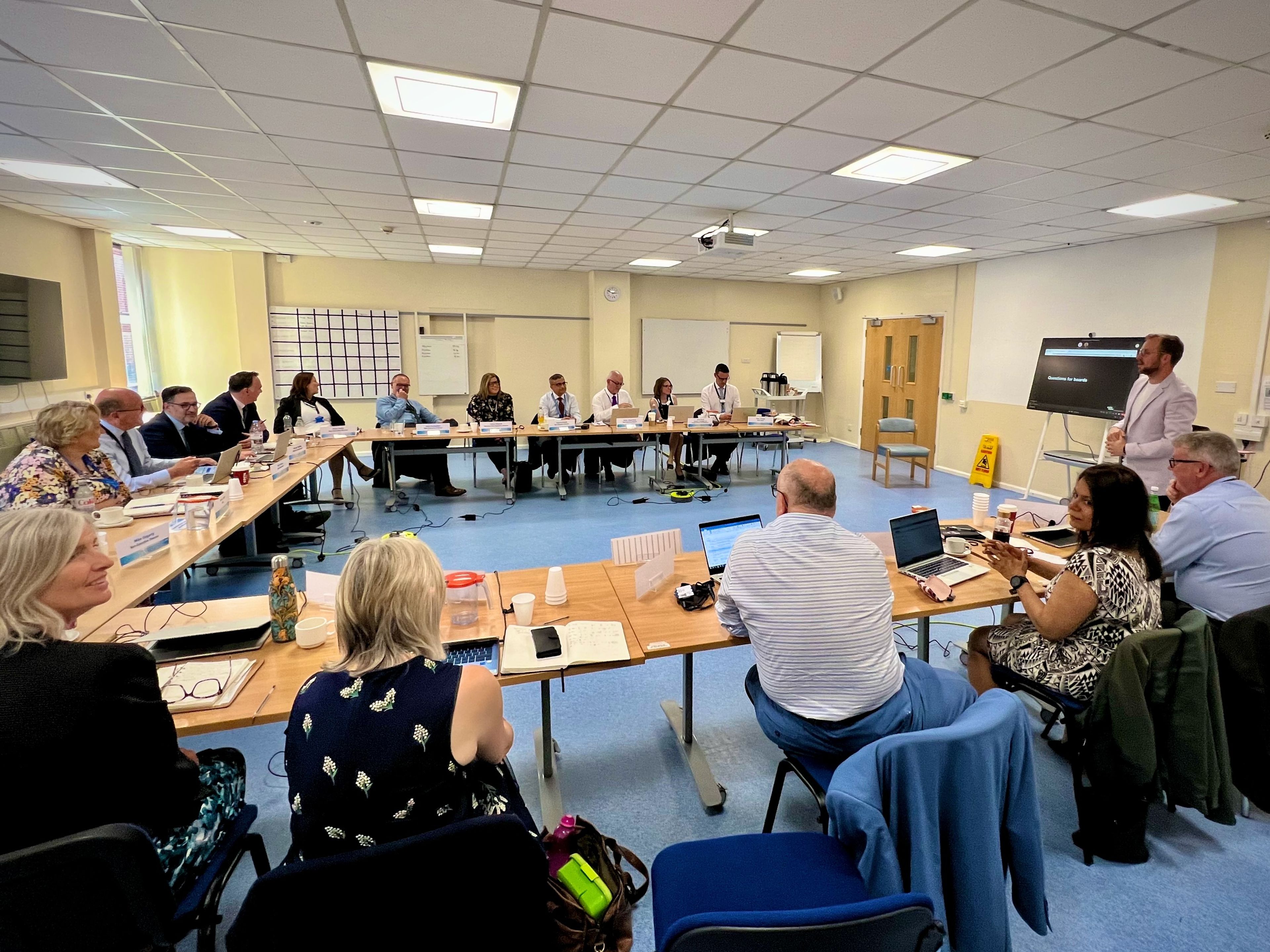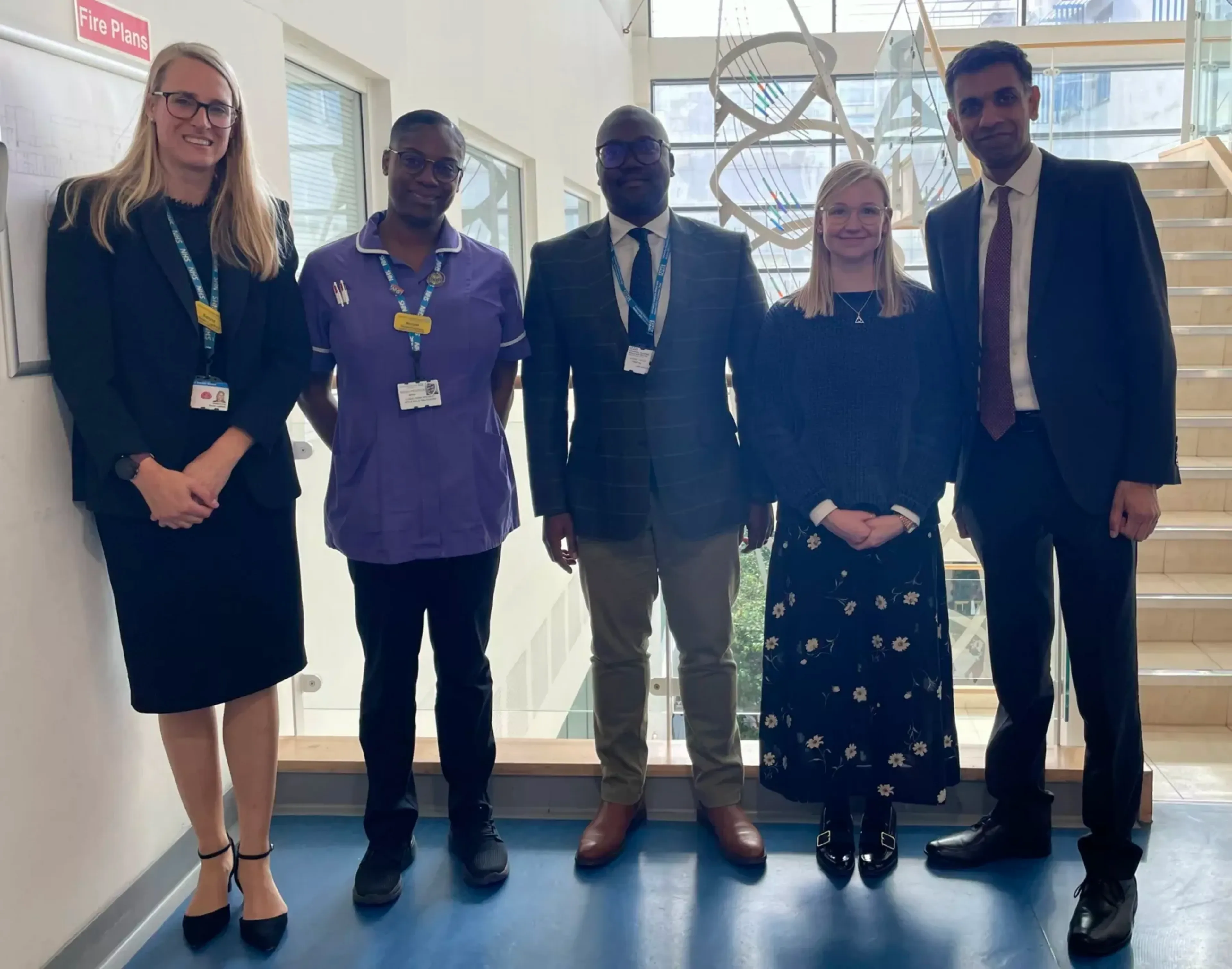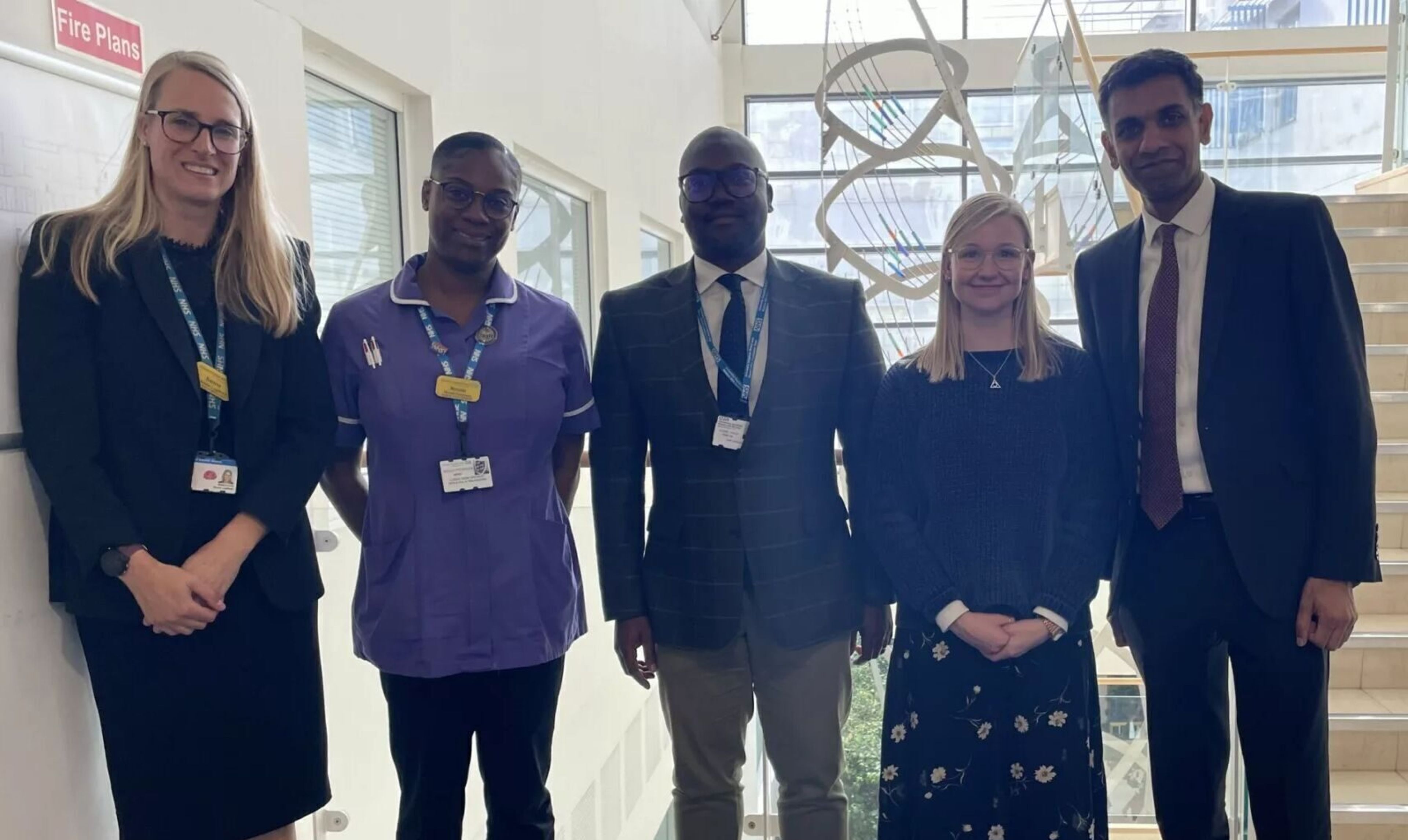
Sickle cell - Weeknote #6

10-14 October 2022
What have we been up to this week?
This week:
We went to Bristol
We met another supporter and potential collaborator for this work
We started to synthesise and analyse our research findings
We ran a research interview with a non-sickle cell expert health care professional
We did a little more planning ahead
Our trip to Bristol
Our goals for our time in Bristol were twofold. First, we went to run four in-person user research interviews with people with lived experience of sickle cell. Second, we came together as the NHS Race and Health Observatory, University Hospitals Bristol and Weston NHS Foundation Trust (UHBW) and Public Digital to discuss how we will work together to improve the experience that people with sickle cell have when they are having a sickle cell crisis.
Once again, we were completely blown away by the openness and honesty of the people who shared their experiences of living with sickle cell so generously with us. Thank you to each of you who has participated so far.
We are also thrilled to share that we will work in partnership with UHBW to test what comes out of our discovery research. This is fantastic news, because it is an important step forward in assuring the impact that this work will have on people with sickle cell.
Making connections with supporters and potential collaborators
We continue to receive messages from people who would like to support this work and collaborate with us - thank you, and please keep getting in touch by emailing connie@public.digital
This week we met Harriet Smith, who is the Workstream Lead for the Innovation for Healthcare Inequalities at Yorkshire and Humber Academic Health Science Network.
Harriet shared her team’s work in increasing access to red blood cell exchange machines for the prevention of crisis and complications relating to sickle cell disease. We have agreed to stay in touch, and to explore how we could support each other for the benefit of people with sickle cell.
Our research findings so far
We are at the early stages of analysing and synthesising what we are learning from our user research. Notable emerging themes are around:
The role and potential of care plans - which vary widely in their format and use
How digital and technology might act as enabler to support people experiencing a sickle cell crisis to be able to safely stay at home, and manage their crisis as home
Failure from healthcare professionals to understand patient-specific needs in the moment of a crisis, meaning that the person must remain alert and aware of how they are being treated so that they can intervene
A tension between the widely recognised expertise of people with sickle cell to understand what they need when they are having a crisis, and the level of mistrust they receive from healthcare professionals when they are specific about those needs
The tension between the need to go to A&E and the flow of the A&E care pathway, which is does not account for the frequency of use and specific needs of people with sickle cell
There is and will be lots more to say about this research. We’re also conscious that in order to have an impact, we will need to remain very focused on our goal. Therefore, we are also thinking about how we share what we are learning so that it can be easily understood and built on by others.
Research with non-sickle cell expert health care professionals
We had a very useful and insightful conversation with a non-sickle cell expert emergency department (ED) doctor this week. We heard about a sickle cell crisis treatment guideline that clinicians can access - alongside many other hospital guidelines - via their phones. Excitingly, this was created in collaboration between ED and Haematology staff, and seems to be working well. This person also shared the view that “These [sickle cell] patients are incredibly experienced in their condition, they are probably more expert than the clinicians.”
Planning ahead
We are thinking about how we can bring together a multidisciplinary group of people to collaborate to better understand the viability and usefulness of the potential digital interventions that are starting to emerge from our research. We are also considering doing further research with sickle cell services that have a good reputation for delivering care. Watch this space!
What we're up to next week
Running more user research, with more people with lived experience of sickle cell
Continuing to analyse and synthesise what we are learning
Restarting the digital landscape review, after deciding to wait until it could be informed by our user research findings
Drafting the first version of our weeknotes report - not because we’re close to being finished, but so we can start to get early feedback on what we’re doing to inform how we progress.
We expect this first draft of the report to cover:
What we’ve done so far
The themes and hypotheses that are emerging from our research
What we’re planning to do next
Things we’re learning that feel important, but which we propose we don’t focus on in this discovery (for the reasons mentioned above)
Getting in touch with us
If you’ve read any of our , you know what to do! For any questions, to share your thoughts and if you think we should be working together, just email connie@public.digital
